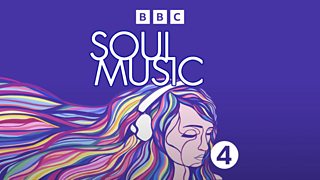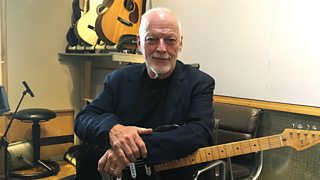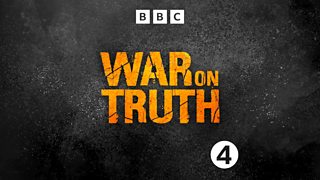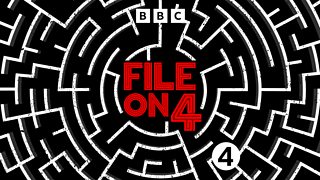How a Ukrainian folk song inspired Pink Floyd to reform
Chervona Kalyna is a stirring folk song with roots stretching back to 17th century Cossack history. Anti-Russian, it was banned prior to Ukrainian independence in 1991. As meaningful now as it was then, this episode of Soul Music reflects on how music can be a unifying force in the most dangerous and difficult of times.
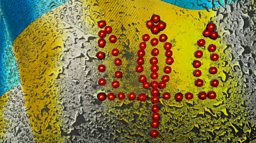
Chervona Kalyna was originally a 17th-century Cossack song
“It is believed the song is the second, unofficial Ukrainian anthem,” states author Nadia Morykvas. “‘Chervona Kalyna’ translates into English as ‘red viburnum’ and it’s a very common plant in Ukrainian gardens and forests. There are many folk songs where kalyna is a symbol of Ukraine.”
There are many folk songs where kalyna is a symbol of Ukraine.Nadia Morykvas
Stepan Charnetskyi was a poet, writer, actor and director who established the first Ukrainian professional theatre. He took the original 17th-century song and created music to accompany it, for one of his theatrical productions.
Then Sich riflemen, who were fighting the Russian army in the early 20th century, took the song and changed certain lyrics – replacing “Cossacks” with “Sich riflemen” for example – “and it became a very powerful anthem of the liberation movement in Ukraine in 1917, 1919,” says Nadia.
The song has held meaning for multiple generations of Ukrainians
Andrij Halushka, a Ukrainian who now lives in London, says the song goes through his family history. “I could well imagine that my great-grandfather could have heard it during the Great War, when he was at the front. I wouldn’t be surprised if my grandfather would hear this song as well in 1939, in the Second World War. He could hear this sung by local Ukrainians as a sign of defiance of the Soviet regime. And my father would hear this song when he was working after university, building roads in what is now Kazakhstan.” His father’s team consisted of people who were freed from Gulag, the notorious Soviet labour camps. “And, yes, I also sang this song in 1990, 1991, during the democracy meetings.”

"The bandura is the instrument of my soul"
Two young Ukrainian musicians talk about playing the folk song Chervona Kalyna.
During the Soviet regime, the song was banned
Taras Filenko is a pianist and musicologist. Originally from Ukraine, he now lives in Pennsylvania. He quotes lyrics from Chervona Kalyna:
He鈥檇 been sentenced to prison for performing this song with his choir in the late '40s.Taras Filenko on his neighbour
“Do not bend low, oh red kalyna, you have a white flower.
Do not worry, glorious Ukraine, you have a free people.”
“Marching forward, our fellow soldiers, into a bloody dance
For to free our brothers, Ukrainians, from Muscovite shackles.”
“This is why the song was prohibited,” he explains, “because of these verses.”
“When I was probably around 10 years old, in my apartment building in Kyiv, an old gentleman lived next door to us.” He was a choir conductor. “He was extremely nice, almost humble, and my mum told me very quietly later that he’d been sentenced to prison for performing this song with his choir in the late '40s.”
People tried to smuggle references to the song into books and films
“During the Soviet regime, this song was suppressed because everything connected to the Ukrainian bourgeois nationalism was quite savagely persecuted,” explains Andrij. But sometimes when there was a “relative relaxation of the regime”, for example in the late 1960s, people tried to smuggle mentions of the song into popular culture.
“I remember seeing it printed in a book: Ukrainian Folk Songs 1971. Also, there was another attempt to smuggle this song in one of the patriotic World War II films, where the main hero sings the first line of the song, with a slightly different tune.” Those who were in the know, understood what it was for, says Andrij.
The song is now an anthem for soldiers fighting in the war against Russia
After Ukraine declared independence, and the Soviet Union collapsed, “things got quiet”, says Andrij. “There was no oppressor to protest against. Ukrainians are free; there is no need to sing this song any longer. Until quite recently.”

It鈥檚 a real connection with previous generations of Ukrainians.Taras Ratushnyy
Taras Ratushnyy is a Ukrainian journalist, civil activist, and now – since war broke out – a rifleman. “My son’s name is Roman Ratushnyy. He’s a hero of this war,” says Taras. “He joined probably the most risky brigade”. On 8 June 2022, Roman was killed. He was almost 25.
Chervona Kalyna was played at the funeral. “Following the ceremony from the cathedral to Maidan square were a dozen of his comrades. They were singing it behind me,” says Taras. “It’s a real connection with previous generations of Ukrainians,” he says. “I think Roman was a common hero from the Ukrainian present. He’s got the real spirit of Ukraine.”
Pink Floyd reformed to record their own version of the song
Boombox are one of the best-known bands in Ukraine. Their singer, Andriy Khlyvnyuk, ended his US tour with Boombox when the war started and went back to Ukraine to defend his country. “His next appearance was on an Instagram post where he is on one of the main squares in Kyiv, the St Sophia Square, with the famous St Sophia monastery behind him.” This is a real symbol of Ukrainian history and statehood, explains Myroslava Hartmond, a British-Ukrainian cultural diplomacy expert. “He is singing Chervona Kalyna wearing full army uniform.”
“It’s just so poignant the way he looks at the camera. He’s really encouraging his people to rise up and defend their country. But he’s not just telling them to do that from a safe distance – he’s the first one on the ground.”
“That original video somehow got picked up by Pink Floyd.” They decided to jam along to that version and recut it, showing signs of mobilisation and, touchingly, says Myroslava, “Ukrainian children singing along to the song.”
“Whenever a Ukrainian cultural thing is picked up by the world, it’s a huge deal for Ukraine,” she says. “Having a traditional song like Chervona Kalyna played by a band like Pink Floyd, it really puts Ukrainian culture on a par, up there with the global pantheon.”
More from 大象传媒 Radio 4
-
![]()
Soul Music: Shine On You Crazy Diamond
Shine On You Crazy Diamond discussed by voices including David Gilmour of Pink Floyd.
-
![]()
Desert Island Discs: David Gilmour
Sue Lawley's castaway is Pink Floyd frontman, David Gilmour.
-
![]()
War on Truth
What's fake, what's real? Stories from the information war over Ukraine.
-
![]()
File on 4 - Ukraine: War Stories
People all over Ukraine tell their stories of the Russian invasion.
